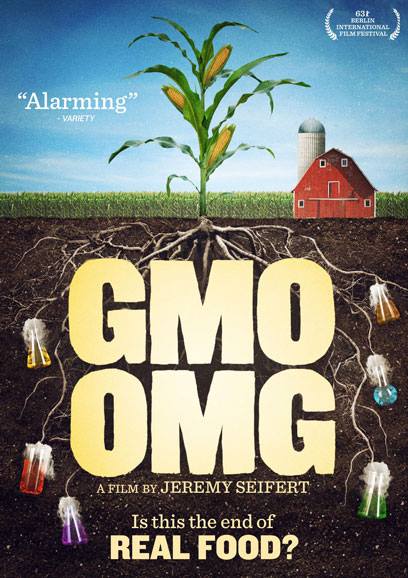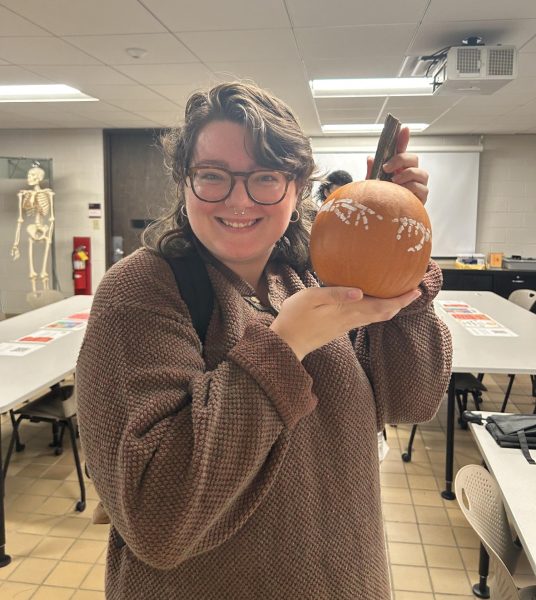“GMO, OMG” documentary questions current food safety
April 22, 2015
The New York Public Interest Research Group (NYPIRG) at Buffalo State screened a timely yet controversial film last Thursday, “GMO OMG.” The 2014 award-winning documentary attempts to answer questions about the use and safety of genetically modified organisms (GMOs) in our nation’s food system. Filmmaker Jeremy Seifert and his two adolescent sons take us on a journey, learning what is really in our food, the effects of GMOs on our health, on our planet, and on our children.
Acclaimed as “constantly provocative” by Screen Daily, “GMO OMG” draws parallels from both corporate giants and political agenda setting. According to the Non-GMO Project, nearly 80 percent of processed foods that contain GMOs. Meat and dairy products in this country start with GMO crops. These facts are causing lots of noise amid consumers and producers, and they are not backing down. But first, what exactly are GMOs?
According to the World Health Organization (WHO), a GMO is any organism whose genetic material has been altered in a way that does not occur naturally. While this definition is supported with scientific evidence, the safety of GMO consumption has long been debated.
GMOs safety waves red flags for international governments and consumers. Over 60 countries around the world have set major restrictions on GMO seeds and products and are calling that scientific credibility into question. Countries including Japan, Australia, Norway and the European Union have rejected the use of GMOs as they believe them to pose unknown health risks.
“[GMOs] create new allergens. They can make a non-toxic food toxic. They can lower immune response. They do lower nutrition,” said Andrew Kimbrell, executive director of Center for Food Safety.
The international medical and food safety community has made similar claims.
After a screening, there was a panel discussion featuring Buffalo State NYPIRG, Food & Water Watch, Lexington Co-op, Kent Miller of Plato Dale Farm, and Amy McMillan, population and conservation geneticist. The open discussion invited community members, students, and faculty to communicate concerns about GMOs.
The environmental effects of GMOs have raised sharp public reactions from scientists around the globe.
“As long as there is genetic variation, we have the ability to evolve,” says Amy McMillan, a Buffalo State associate professor in biology.
McMillan countered Kimbrell’s argument by asserting that the technological uses of genetic modification have been proven to increase the health and nutrition of food. However, she cautioned that the use of herbicide resisters such as Roundup Ready soil are creating a monoculture with no genetic variation. This evolutionary threat posits significant concerns to the environment.
Large agricultural companies have often been called bullies to small farm businesses.
“The family farm is going by the wayside in a hurry,” says a GMO seed dealer who compared the impact of companies like Walmart on mom-and-pop businesses to that of big agricultural farms to small farmers.
“There’s something extremely wrong when a government becomes captive to one industry,” said Dr. Vandana Shiva, founder of the Research Foundation for Science, Technology, and Ecology.
Lobbying from both sides of the issue has caused critical disruptions in passing legislative action. According to the Food and Water Watch, The BioTech Industry spent $547.5 million lobbying Congress from 1999-2009. BioTech firms hired over 300 former congressional and White House staff members as lobbyists.
Kent Miller, owner of the Plato Dale Farm, expressed some of his concerns as an organic producer. “Nearly all cereal grains are sprayed with Roundup. Wheat is sprayed and within weeks, these molecules are broken down. Gluten is not the issue.”
Though the event brought a chorus of critics, NYPIRG organizer Alex Bornemisza ensured attendees to not leave disheartened.
“We strongly encourage those who want to see this legislation go through to contact your elected officials and tell them directly you want labeling in New York,” said Rita Yelda, a representative for Food and Water Watch.
Yelda said to vote for state bill Assembly number 617 and Senate number 485 to require the labeling of food as GMO.
For those who are interested in contacting representatives, NYPIRG suggests calling New York State Assemblyman Sean Ryan at 716-885-9630.
Email: [email protected]




